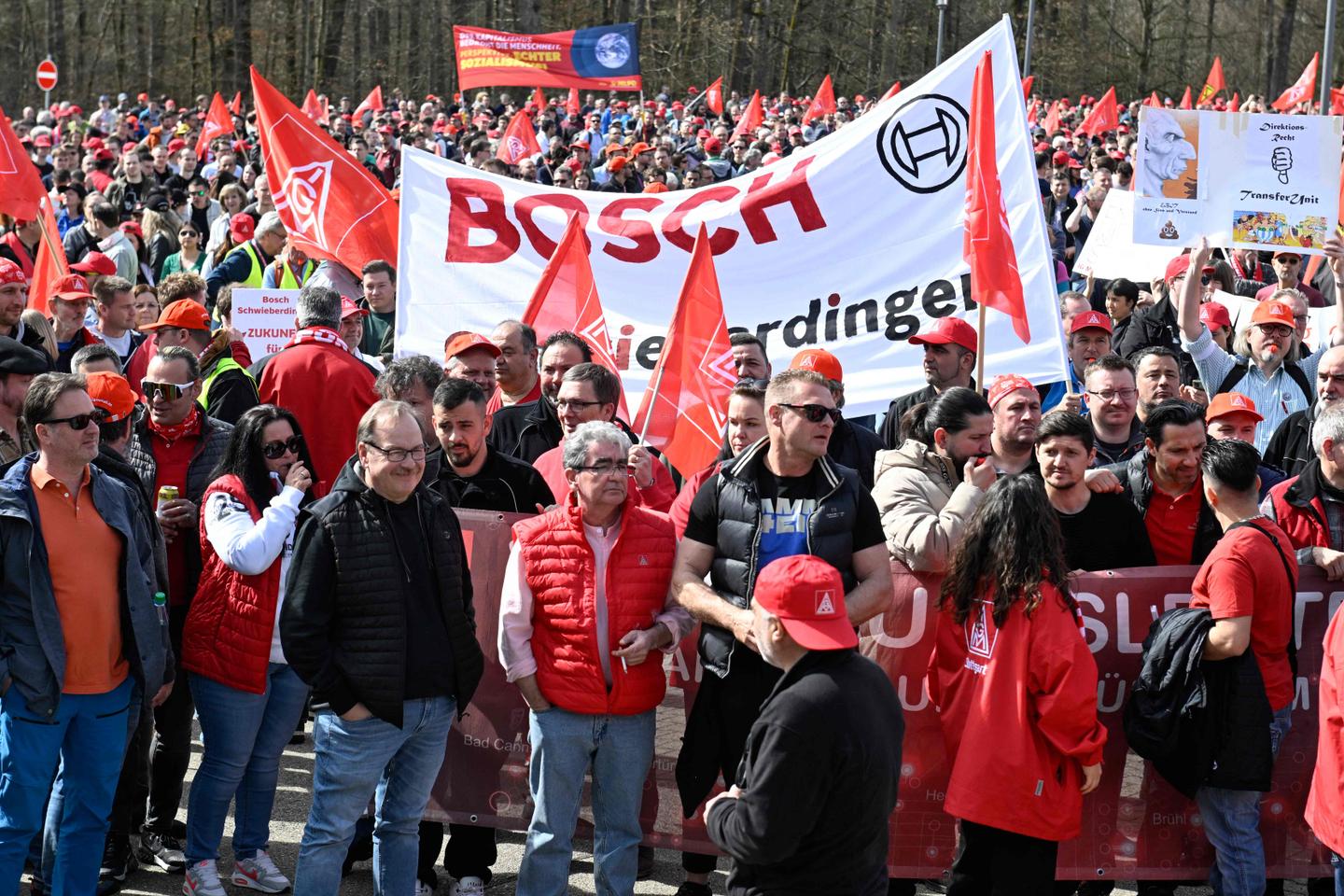The cuts represent about 10% of Bosch’s total workforce in the country, and 3% of its staff worldwide. Workers’ representatives vowed to resist the cuts, labelling them ‘unprecedented.’
German industrial giant Bosch said Thursday, September 25, it would cut 13,000 jobs, mostly in its auto unit, in the latest blow for the country’s ailing car sector.
The auto industry in Europe’s biggest economy has been hammered by fierce competition in key market China, weak demand and a slower than expected shift to electric vehicles.
The cuts, all of which will take place in Germany, represent about 10% of Bosch’s total workforce in the country, and 3% of its staff worldwide.
Bosch − the world’s biggest auto supplier, making everything from braking and steering systems to sensors − said the layoffs were needed to help make annual savings of €2.5 billion in the group’s car unit.



Ok so from what i could see in your comment, you’re arguing very much from the point of view of macroeconomics. Your explanation feels like textbooks macroeconomics, at least to me.
The issue i have with your stance is that it’s all too much focused on economics (who produces cars and sells them and such), but geopolitics is not just about economics. Not at all, in fact. Ultimately, if we want to have a future, we will have to live with our neighbors for a very long time. (The future is a very long time). To do this, we need to be on good terms with the other countries. What i’m not seeing in your comment is how this thought flows into your text. Where is the relationship between countries reflected in the market situation? Where is the trade relationship based on a mutual understanding of mutual interests? Where is the equality in the game?
I think that macroeconomics must be a side aspect of geopolitical contemplations, in other words, countries should strive to balance their trade relationship not for economic prosperity or necessity, but instead to respect international balances. That is not “protectionism”, it’s just making sure that the market isn’t in eternal turmoil because of a series of disruptions from aggressive competitors.
Whether you subsidize the companies in your country or not is ultimately a choice that every country makes for themselves. It should also be noted that a lot of subsidies are very indirect, so it’s difficult to say whether you’re even subsidizing the auto industry or whether you’re subsidizing your mining industry or your housing economy. Like, if you provide cheaper housing to your citizens, that lowers the cost of living, which means people can afford to earn less and still live well, which means companies can pay lower wages, which makes companies more competitive. Is this a subsidy to the auto industry or not? It’s hard to say. Ultimately what countries must agree on is international relationships, while internal affairs are ultimately a choice that every country makes for themselves.
You’re right that this is geopolitical too: China is on the offensive. They’re trying to ensure the west (EU at least - USA is going to end itself anyway and Canada is too small to count on its own) is completely dependent on them. I’m of the opinion that countries should try to get along without one of them forcing the others into submission. But China is not being a diplomatic or trade partner in good faith.
As it is, I think it’s fair to tariff them where they’re trying to attack us specifically. There are also a lot of industries we’ve already lost because of the cost of labor here vs there - I don’t see any need to tariff those, I’m not Trump. I just want to see Europe protect the industries it’s still good at because otherwise we’ll be completely broke in a few decades if we have neither goods nor services to sell. Or we may all have to live like the Chinese do - get rid of some workers rights, reduce wages, etc - to stay competitive. Maybe start doing the 996 work schedule?